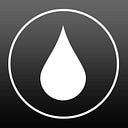More Is Not Always Better
I had a girlfriend who used to say, “In America, you can’t be too rich or too thin!” I have also heard it said, “If some is good, more is better!” Different words — same concept. However, in chemistry and water treatment, we know this can be a dangerous concept.
In a previous post, we talked about chemical reactions being governed mainly by time, temperature, and concentration. In this context, “more” is related to “concentration.” In industrial water treatment, more can mean higher chemical sales, but it can also mean poor results in the program and problems within the system itself. More chemical than needed can lead to increased fouling and scaling — and a very dissatisfied customer.
A perfect example of more not being a good thing is when it comes to chlorine. High levels of chlorine can cause an interference when testing important parameters, which in turn can lead to improper recommendations and adjustments. Ultimately, program performance will suffer and business partnerships (accounts) can be lost.
So, the old adage “If some is good, more is better” is actually a bad thing in chemistry and water treatment! As far as “you can’t be too rich or too thin,” well…let’s just say that at this point I don’t think I’m anywhere in danger of being “too thin”!
